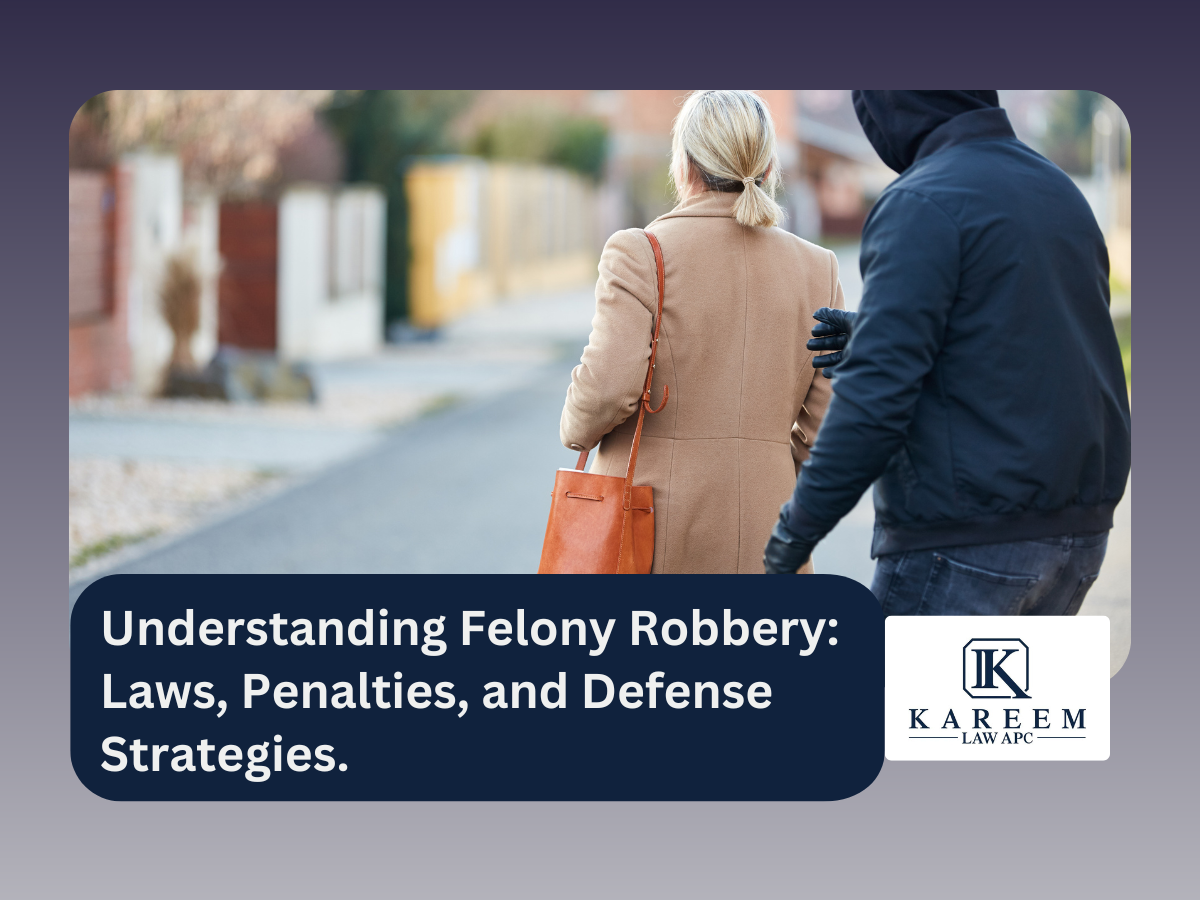Being charged with felony robbery crime in California can have serious and long-term implications. California law defines robbery as taking property by force, fear, or menace. As a “violent felony,” this crime can result in long jail sentences, heavy fines, and a permanent criminal record. Robbery defendants must know the laws, punishments, and defenses. A best criminal defense lawyer felony can help you to understand your laws and regulations. This article will outline California’s felony robbery legislation, the penalty for a conviction, and some of the most popular defense methods to minimize or dismiss charges.
What is Robbery Under California Law?
Robbery is the criminal taking of property by force or terror under California Penal Code Section 211. The severity of this offense depends on whether the robbery occurred in an inhabited dwelling or that a weapon was used.
Robberies in California fall into two categories:
- First-degree robbery: In a home, business, or vehicle. Also applies when the victim is using or attempting to use a firearm. Most serious robbery is first-degree, with the toughest penalties. If the robbery occurred in an occupied residence or involved a handgun, the court may impose an additional term of 3, 4, or 6 years in state prison. A conviction for two strikes might result in a 25-to-life sentence.
- Second-degree robbery: It includes street robberies, store thefts, and other acts that don’t qualify as first-degree. Second-degree robbery carries less severe but nonetheless significant punishment. A second-degree robbery conviction under California Penal Code 212.5(b) can result in state jail for 2, 3, or 5 years. Possible parole or probation based on case circumstances. Second-degree robbery can entail a strike under the Three Strikes Law if aggravating elements exist.
Factors That Can Enhance Your Sentence
The California legal system punishes robbery as a violent crime. First- and second-degree felony robbery have different penalties. Here are the factors that improve sentences. California law establishes basic sentencing standards, but many factors can raise your penalty.
Robberies with weapons carry harsher penalties. Using a handgun during a robbery might result in a 10-year sentence under California Penal Code 12022.53. A past conviction for a comparable crime may result in a harsher sentence. Repeat criminals risk lengthier prison terms under California’s Three Strikes Law. Robberies committed as part of gang operations might carry harsher punishments. California Penal Code Section 186.22 enhances street gang punishments.
Defenses to Felony Robbery Charges in California
If you’re charged with felony robbery, you have various defense options. While each instance is different, popular robbery defenses include:
- Lack of Force or Fear: A robbery conviction requires the prosecution to prove you used force, fear, or threats to steal goods. Robbery may be reduced or dismissed if you did not use force or terror to seize the item. If you stole property without provocation, it may be considered theft rather than robbery, a lesser felony.
- False accusation/misidentification: Some people are falsely charged of robbery owing to mistaken identity. If you have a strong alibi or evidence that you were not at the crime site, your counsel may challenge the robbery charge.
- No Steal Intent: Robbery requires intended permanent property loss. If you did not plan to steal or meant to return the property, your attorney may argue that robbery does not apply. In a dispute or temporary property theft situation, it could lower the charges.
- No property ownership: The fact that you did not steal property is another defense. If you can prove the victim did not possess the property or that you owned it, the charge may be withdrawn or reduced.
- Force or Coercion: A defendant may claim coercion in some robbery situations. Whether you committed the robbery under duress or due to safety threats may decrease or eliminate criminal responsibility.
- Insufficient Evidence: The case may be dropped if the prosecution cannot establish your robbery. Your defense counsel will examine witness testimony, physical evidence, and video footage to find case holes.
- Plea Bargaining: You may benefit from negotiating a plea deal with the prosecution. Pleading guilty to a lesser offense could lower the sentence. Plea negotiating reduces trial uncertainty and can lead to leniency.
Conclusion
California felony robbery carries a lengthy jail sentence, high fines, and a permanent criminal record. If you’re charged with robbery, you must know the laws and defenses. A competent felony criminal defense lawyer can help you navigate the legal system, present a strong defense, and get the best case outcome. If you or someone you know is charged with felony robbery in California, get legal representation from the best federal criminal defense lawyer to preserve your rights and future. At Kareem Law Group, we represent the best felony defense lawyers who have handled a wide range of cases. Get in touch with us today at (888) 506-6519!









